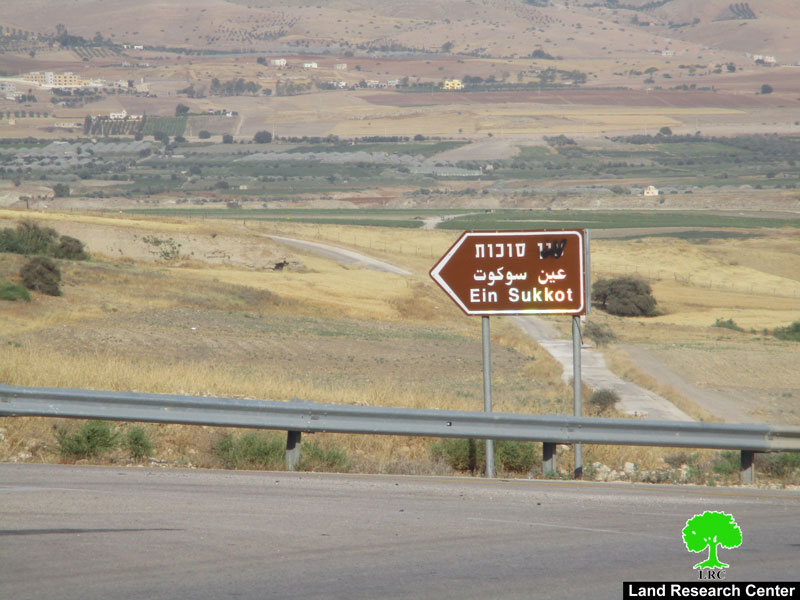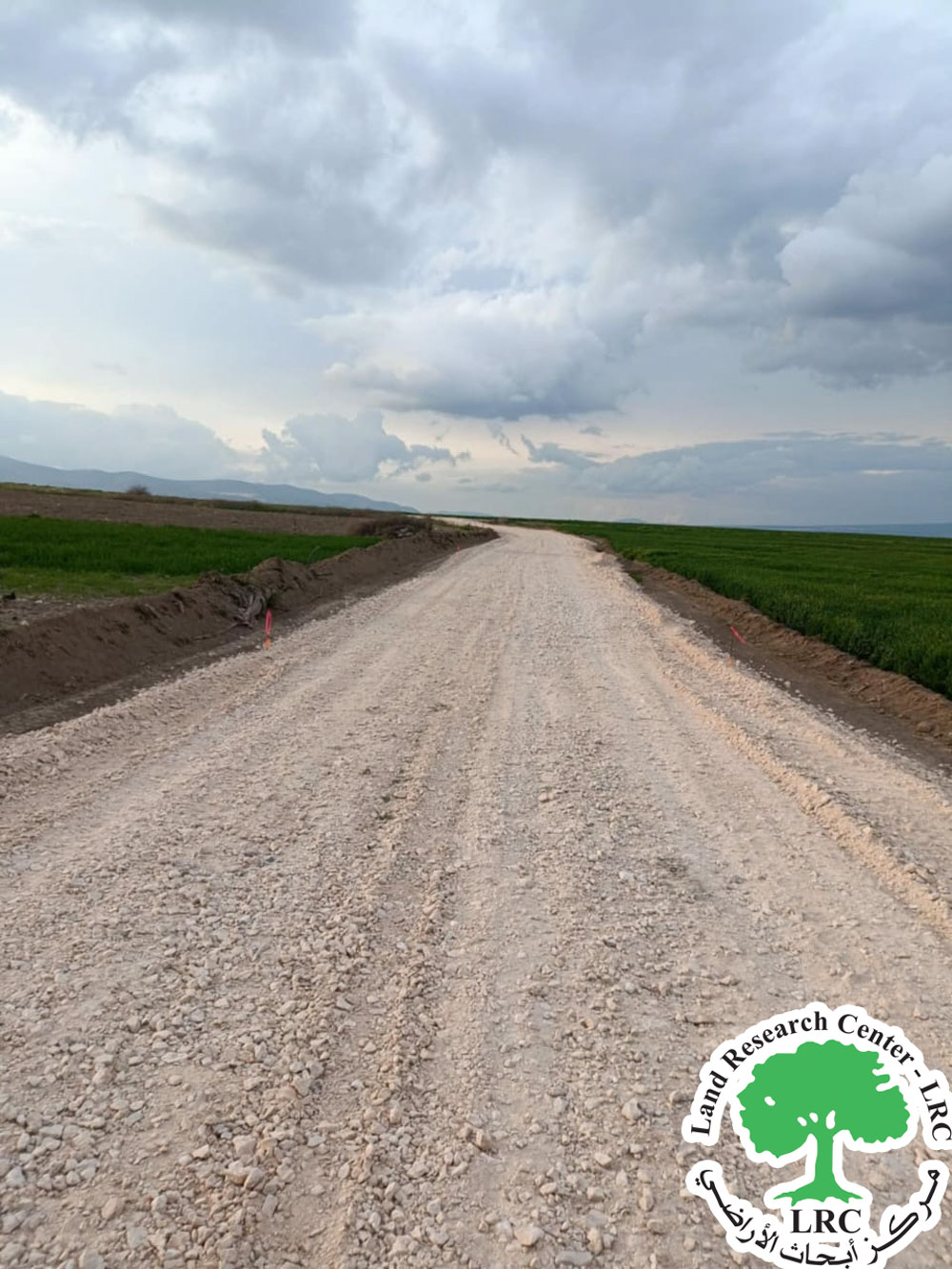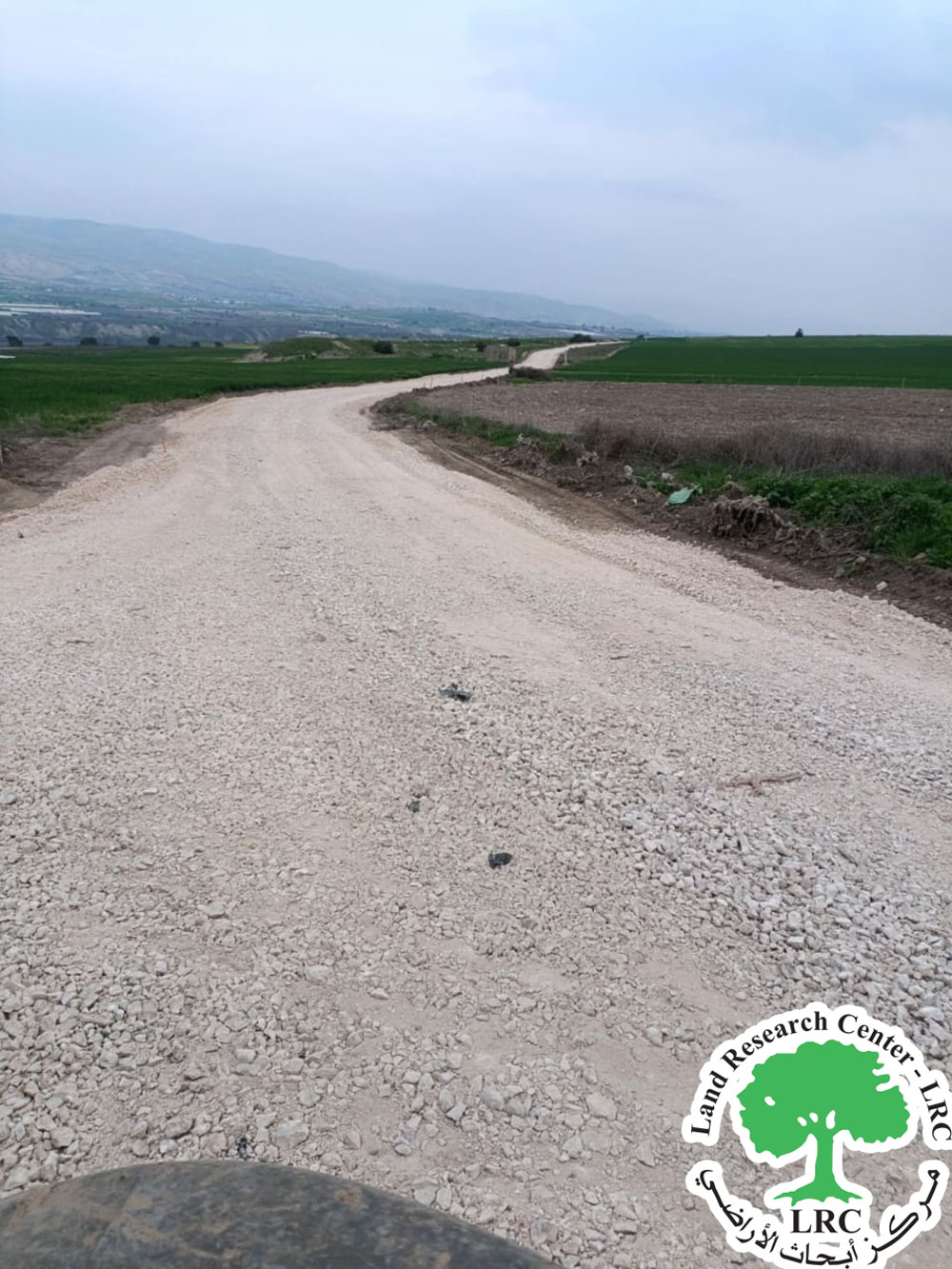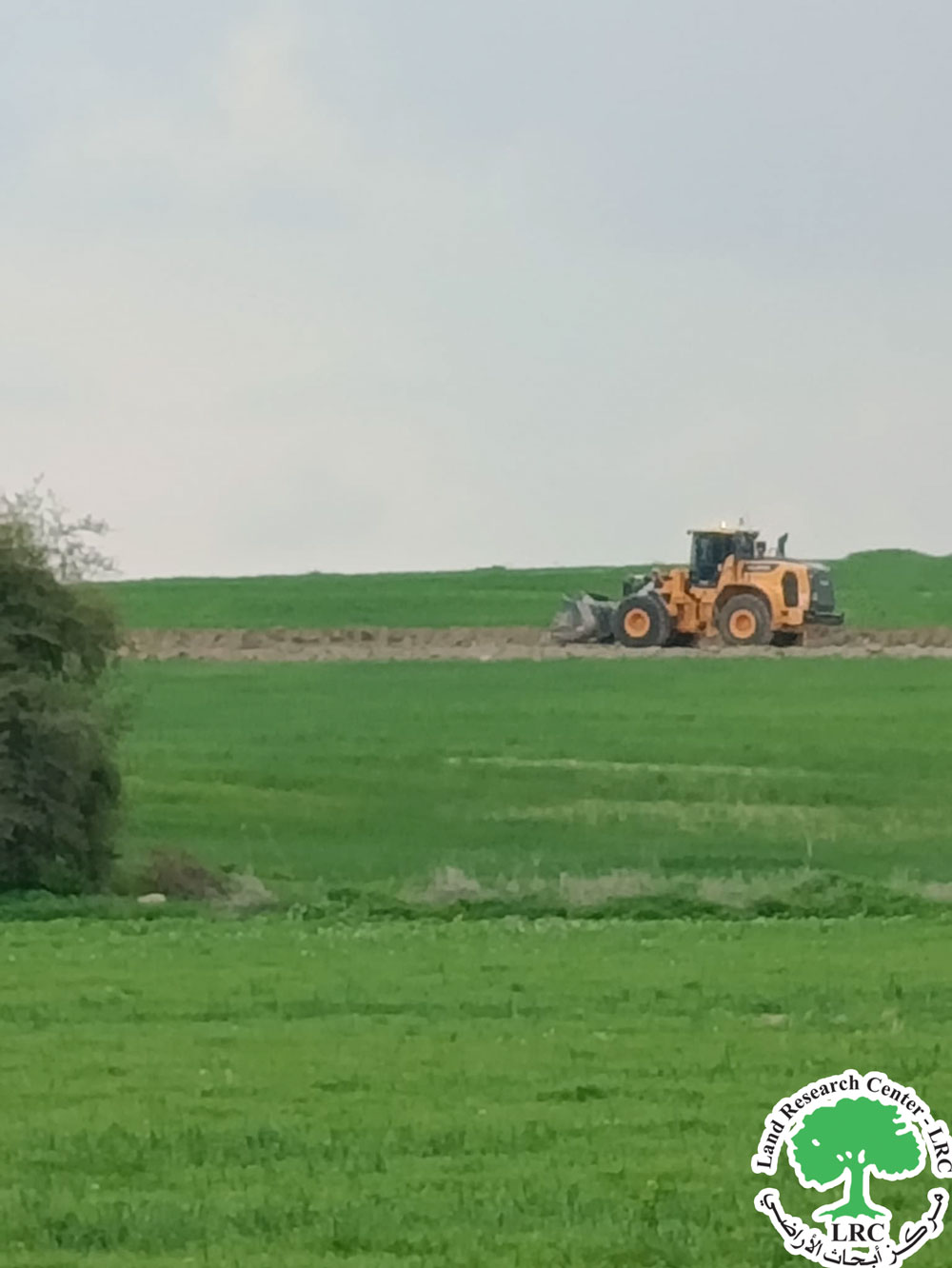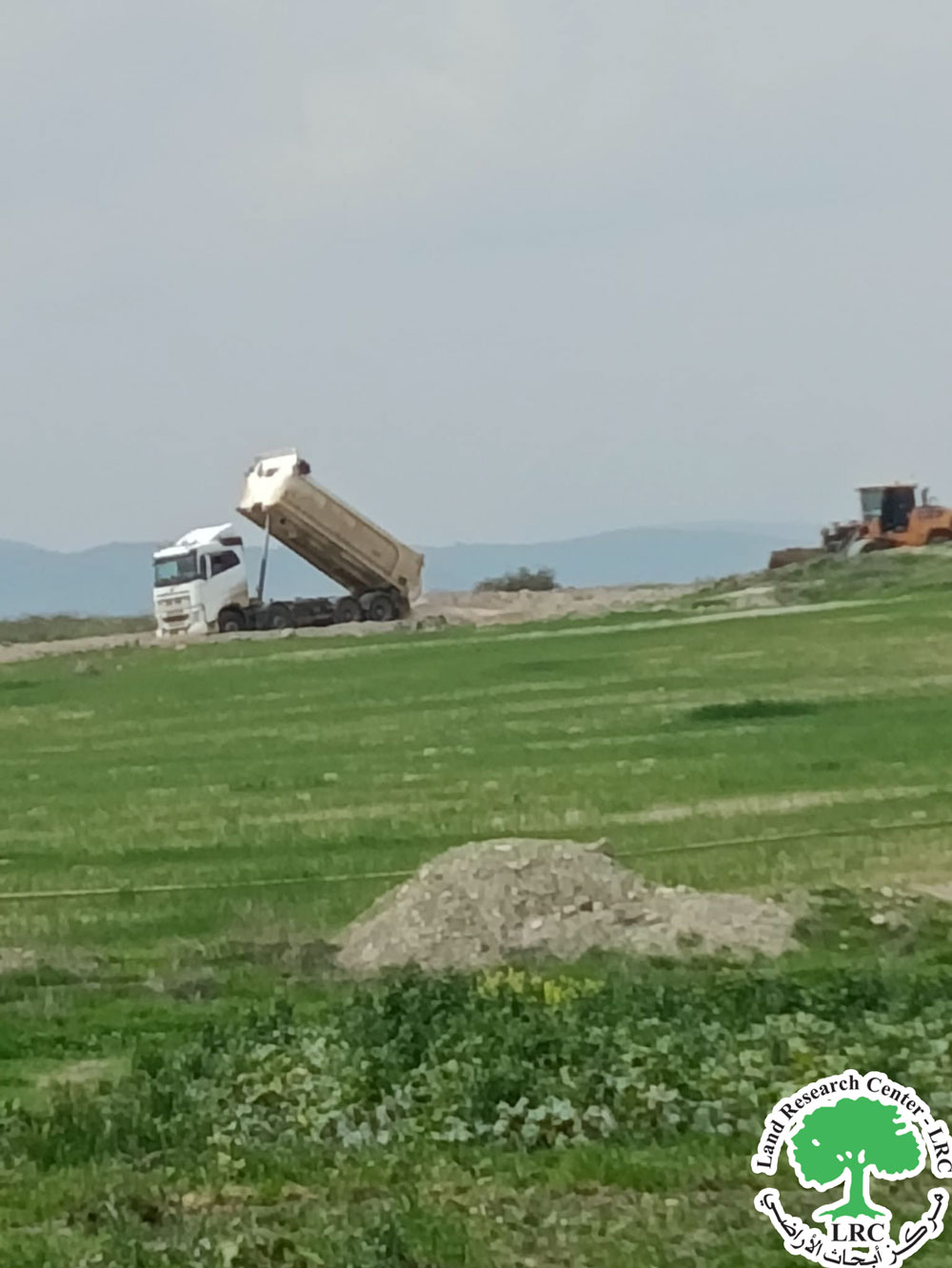Settlers Begin Upgrading the Road Linking the Sakhout Plain and the Palestinian-Jordanian Border / Tubas Governorate
Violation: Starting work on a new colonial road.
Location: Sakhout Plain area, Northern Jordan Valley / Tubas Governorate.
Date of Violation: February 2025.
Perpetrator: Israeli Settlements Council.
Affected Party: Farmers in the Sakhout Plain.
Description:
At the beginning of February 2025, the so-called Israeli Settlements Council in the Palestinian Jordan Valley began work on upgrading and leveling an old colonial road linking the Sakhout Plain area in the east to the Palestinian-Jordanian border, with a length of five kilometers and a width of six meters.
The primary goal of this project is to gain complete control over the entire Sakhout area, impose settlers' control over it, and seize its resources entirely, in addition to preventing farmers from utilizing their lands.
In turn, activist and head of the Jordan Valley file in the Tubas Governorate, Mr. Mutaz Bisharat, stated:
"Since the events of October 7 and the declaration of a state of war on Gaza, we have been suffering from the inability of most farmers to reach the Sakhout area, as the Israeli army imposed a military blockade that prevented the exploitation of most of the Sakhout lands, which are considered border lands. Previously, farmers were able to reach them in one way or another. The settlers have taken advantage of the events affecting the region to rehabilitate the old road, which existed during the Jordanian rule, with the aim of imposing complete control over the area and seizing the Sakhout spring."
The rehabilitation of the road for settlers has negative consequences, as it facilitates their access to the Sakhout spring and allows them to take control of the lands that farmers had been using, which are estimated to cover around five thousand dunums. This raises the alarm for a new disaster for the people of the area.
It is worth mentioning that the Sakhout area, located no more than 150 meters from the Jordan River and 7 kilometers south of the village of Ein Al-Bayda, was home to at least 300 Palestinian families before 1967, who lived in mud houses. Farming and livestock breeding were their only occupations.
In conjunction with the 1967 war, the Israeli army completely displaced the residents and declared the Sakhout area a buffer zone with the Jordanian border. The occupation began fencing the area completely and surrounding it with minefields, resulting in several martyrs.
After the Jordanian peace treaty with Israel, the Israeli occupation began dismantling the mines from large areas of the border agricultural lands and then gave them to settlers to exploit, instead of returning them to their rightful owners. The Sakhout area was one of the regions allowed for settlers to exploit and access, and the water springs in the area were transformed into a tourist resort named "Ein Sakhout ."
Despite the legal struggles within the corridors of the Israeli High Court, which lasted for five years, the court acknowledged the Palestinian right to about 3,500 dunums out of 5,000 dunums, according to the data from the Tubas Governorate. However, after the events of October 7, the occupation reasserted full control over the Sakhout area, and today, it is paving the way for settlers to completely dominate it.
The State of Israeli occupation, through this process of land confiscation and appropriation from Palestinians, turns its back on all international humanitarian laws and conventions. It practices discriminatory measures against Palestinians, stripping them of their ownership, whether it is of buildings or land. This policy of occupation is considered a grave sin committed by the occupying power and violates all international norms and laws, which stipulate the following:
- Geneva Convention IV of 1949, Article 174: "The destruction of property and its extensive appropriation is prohibited, unless justified by urgent military necessity, and is carried out unlawfully, illegally, and arbitrarily."
- The Road Map Agreement, signed between Israelis and Palestinians (under the auspices of the United States, the European Union, Russia, and the United Nations) on April 30, 2003: This agreement called on the Israeli government to freeze all settlement construction activities, stating: "The Israeli government must immediately dismantle all settlement outposts established since March 2001, in accordance with the Mitchell Report. The Israeli government must also freeze all settlement construction activities, including natural growth, according to the adopted plan and USCR 1515-2003."
- United Nations Security Council Resolution 446 of 1979: "Israel is urged to rescind its previous measures and refrain from taking any action that could change the legal status, geographical nature, or materially affect the demographic composition of the occupied Arab territories since 1967, particularly Jerusalem. It also urges Israel not to transfer its civilian population to these territories."
- Universal Declaration of Human Rights, adopted by the United Nations General Assembly under Resolution 217 A (III) on December 10, 1948: "No one shall be arbitrarily deprived of his property," meaning Israel is prohibited from destroying or confiscating Palestinian property under any pretext.
مشروع: حماية الحقوق البيئية الفلسطينية في مناطق "ج" SPERAC IV - FCDO
Disclaimer: The views and opinions expressed in this report are those of Land Research Center and do not necessarily reflect the views or positions of the project donor; the Norwegian Refugee Council.
إخلاء المسؤولية: الآراء ووجهات النظر الواردة في هذا التقرير هي آراء ووجهات نظر مركز أبحاث الأراضي ولا تعكس بالضرورة وجهات نظر أو مواقف الجهة المانحة للمشروع؛ المجلس النرويجي. للاجئين
Attached, are photos of the targeted road rehabilitated by illegal colonists, another colonial road to which Palestinians have no access, which facilitates the occupation seizure of ‘Ein Sakut spring after prohibiting Palestinians from reaching it
